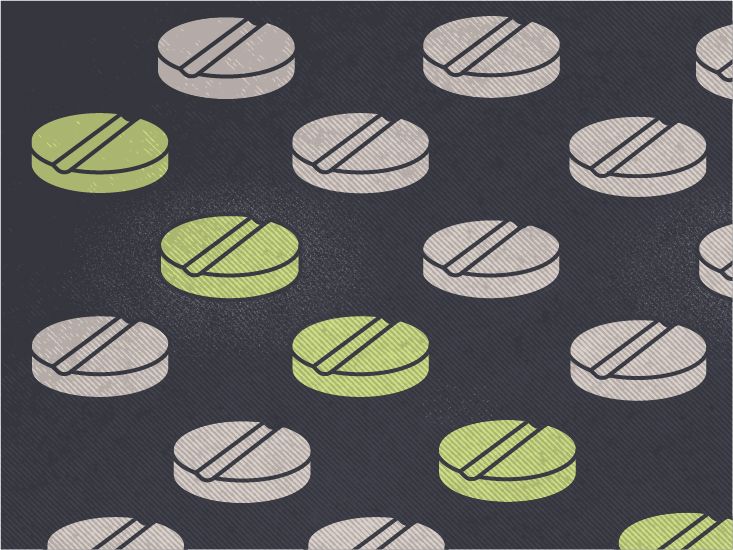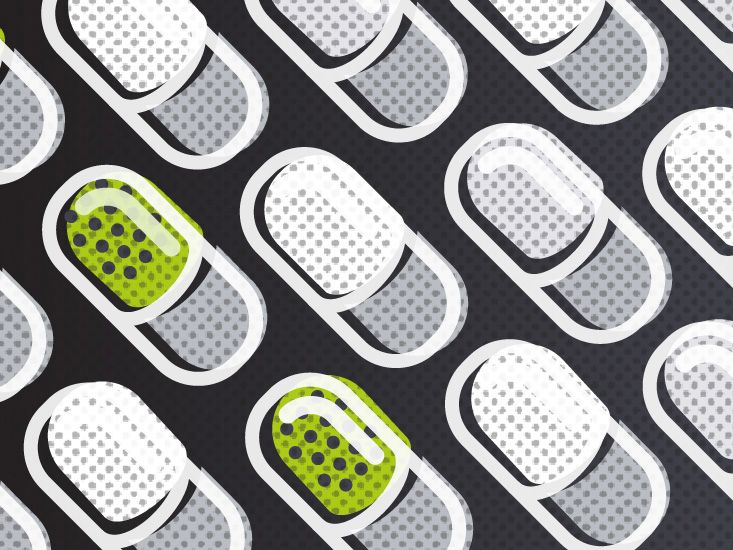Understanding ADHD and School Challenges
Attention deficit hyperactivity disorder (ADHD) is one of the most common neurodevelopmental disorders, affecting around 9.4% of children. The core symptoms include inattention, hyperactivity, and impulsivity, which can significantly impact a child's ability to succeed in school.
Children with ADHD often struggle with:
- Staying focused during lessons
- Completing tasks and assignments
- Staying organized and managing time
- Following multi-step directions
- Working independently without reminders
- Staying seated and avoiding disruptive behaviors
- Processing and memorizing information
These difficulties put them at higher risk for poor academic performance, grade retention, and low self-esteem. However, with proper support at school and home, children with ADHD can thrive and reach their full potential.
Working With Your Child's School
Partnering with your child's school is key to setting them up for success. Here are some tips:
Get Evaluated for an IEP or 504 Plan
Children with ADHD may qualify for an Individualized Education Program (IEP) or 504 plan to receive accommodations and modifications to their learning. The school can do an evaluation to determine eligibility.
Communicate Regularly With Teachers
Maintain open lines of communication with your child's teachers through email, meetings, or daily reports. Update them on any medication changes or challenges at home.
Request Accommodations
Ask about accommodations like preferential seating, extended time on tests, reduced homework, use of fidget toys, and access to sensory breaks. Provide documentation of ADHD diagnosis.
Get Organized at School
Work with teachers to help your child stay organized. Use folder systems, daily planners, locker strategies, and checklists.
Coordinate With Other School Staff
Loop in counselors, school psychologists, occupational therapists, and administrators as needed. They can help address emotional, behavioral, and learning needs.
Developing Home Routines and Study Skills
Structure, routines, and study strategies at home are vital for school success with ADHD. Helpful tips include:
Create a Homework Station
Set up a clutter-free, distraction-free workspace for completing homework. Include school supplies, fidget toys, noise-cancelling headphones, and visual timers.
Stick to a Schedule
Follow a regular homework/study schedule each day. Use timers, schedules, checklists, and calendars to keep on track.
Take Breaks
Incorporate short sensory or movement breaks every 20-30 minutes during study sessions to refocus mental energy.
Minimize Distractions
During study times, limit exposure to stimuli like TV, phones, social media, and loud music.
Utilize Tools and Strategies
Try recording lessons, using digital apps, visualizing information, mnemonic devices, or multisensory learning techniques.
Reinforce Efforts
Celebrate small wins and progress. Use rewards, encouragement, and positive reinforcement.
Supporting Organization and Time Management
Kids with ADHD often struggle with disorganization and time management. Here are some useful strategies:
Use Visual Reminders
Post checklists, daily schedules, calendars, and to-do lists around the house. Have your child cross tasks off as completed.
Simplify Assignments
Break larger assignments down into smaller, manageable chunks. Provide instructions one step at a time.
Set Time Limits
Use a timer for each task. Adjust limits based on your child's needs and attention span.
Designate Study Spaces
Define locations for schoolwork, backpacks/supplies, signed tests and forms.
Clean Out Backpacks Daily
Make it a daily habit to empty and reorganize bookbags and folders.
Utilize Planners
Use physical or digital planners to record assignments, test dates, projects, and activities.
Promoting Focus and Reducing Distractibility
Children with ADHD suffer from significant distractibility. Strategies that can improve focus include:
Provide Fidget Items
Give your child toys like stress balls, resistance bands, or fidget spinners to occupy hands.
Play Background Sounds
Use white noise or nature sounds to help block out small noises.
Allow Movement Breaks
Let your child get up frequently to stretch, pace, or squeeze in some jumping jacks.
Limit Eye Distractions
Face your child away from doors, windows, TV screens, and people passing by.
Divide Work Into Chunks
Use the "work then break" system, setting a timer for 15-20 minutes of work before a short break.
Provide Incentives
Offer rewards like stickers or extra computer time for staying on-task.
Managing Hyperactivity and Impulsivity
Hyperactivity and impulsivity represent two other core symptoms of ADHD that impact learning. Useful strategies include:
Encourage Physical Activity
Make sure your child gets daily exercise and movement to release excess energy.
Teach Calming Techniques
Practice deep breathing, visualization, meditation or yoga to help your child self-soothe and calm down.
Use Behavior Modification
Clearly define rules and consequences. Praise positive behaviors and limit attention on negative behaviors.
Model Self-Control
Demonstrate and narrate techniques like stopping to think before answering, counting to 10, or taking deep breaths.
Ignore Minor Disruptions
Pick your battles and try to overlook minor incidents of impulsivity, fidgeting or hyperactivity.
Build in Breaks
Plan short breaks during lessons or work periods so your child can release pent-up energy.
Maintaining Open Communication With Your Child
Communication is key when supporting a child with ADHD. Helpful strategies include:
Actively Listen
When your child speaks to you, stop what you are doing to listen attentively and validate their feelings.
Ask About School Days
Check in regularly about school performance, challenges, and peer relationships.
Set a Positive Tone
Phrase discussions positively. Say "you can do it" versus "you won't succeed if...".
Help Identify Strengths
Boost confidence by discovering areas of competence (art, sports, music, etc).
Collaborate on Solutions
Involve your child in coming up with strategies to tackle school challenges.
Give Specific Feedback
Rather than saying "good job", explain exactly what your child did well after assignments or tests.
Seeking Extra Support
FAQs
How can I advocate for my child with ADHD at school?
Schedule a meeting with your child's teacher and school counselor. Explain your child's challenges and provide documentation of ADHD diagnosis. Politely request accommodations like preferential seating, reduced homework, use of fidget toys or any strategies that will support your child's learning needs.
What academic accommodations help kids with ADHD?
Extra time on tests, quiet study spaces, frequent movement breaks, minimized distractions, access to sensory tools, teacher notes, reduced workload, digital tools and apps can all help accommodate ADHD learning struggles.
How can I keep my ADHD child organized at school?
Use folder systems, daily assignment notebooks, checklists, visual schedules, locker organizers and reminders to help keep schoolwork and materials organized. Clean out backpacks regularly and have a designated schoolwork space at home.
Should my ADHD child get an IEP or 504 plan?
If ADHD symptoms significantly impact learning, your child may qualify for formal support like an IEP or 504 plan. The school can evaluate your child and develop a customized learning program with legal accommodations.
What are useful study strategies for ADHD?
Short study sessions, stimulation reduction, distraction barriers, noise blocking, movement breaks, visualization, mnemonics, digital tools, physical manipulatives and multi-sensory approaches can help kids with ADHD optimize study time.
Disclaimer: This article is for informational purposes only and does not constitute medical advice. Always consult with a healthcare professional before starting any new treatment regimen.
Related Coverage
Adderall shortages can disrupt treatment for those with ADHD. Learn causes of shortages, impacts, coping strategies, alternative medications, and self-care....
Vyvanse may trigger or exacerbate tinnitus in some people due to its effects on dopamine levels in the brain. Learn about the risks, studies on side effects, and coping strategies....
The FDA has approved multiple generics for Vyvanse pending patent disputes. Low cost versions could launch in 2023, expanding access and lowering prices....
Struggling with ADHD brain fog? Discover routines, nutrition hacks, and medication tips to clear the haze and boost focus....
Facing Adderall shortages? Consider affordable generic Dexedrine options like dextroamphetamine sulfate for comparable ADHD symptom relief at lower cost....
If you think you may have ADHD, asking your doctor the right questions is key to getting properly evaluated and diagnosed. Here is what to discuss about testing....
Learn how Quillivant XR interactions with drugs, alcohol, and supplements can affect your health. Stay safe and informed....
Learn about getting an ADHD diagnosis, treatment options like stimulant medications, and how to safely purchase affordable ADHD drugs online legally....
Learn what Mydasis side effects feel like, which are common, how to manage them, and when to seek medical help....
Online ADHD assessment and medication management provides a convenient way for busy adults to get diagnosed and access prescription stimulants like Adderall and Vyvanse....







